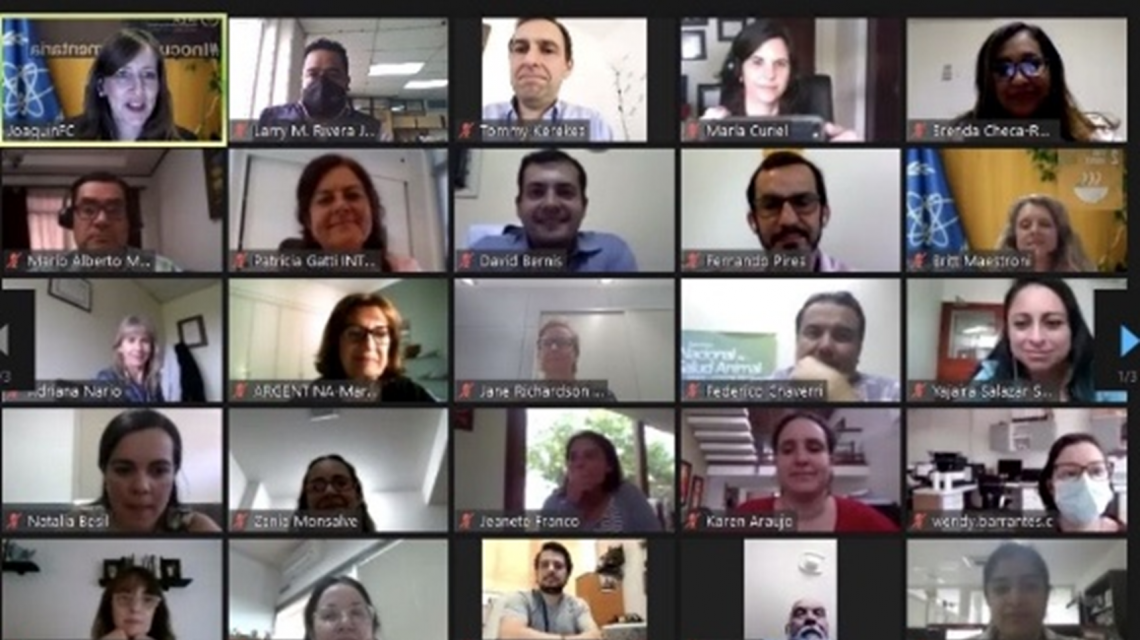Through the Joint FAO/IAEA Programme of Nuclear Techniques in Food and Agriculture, the IAEA is helping to establish a Data Sharing Committee (DSC) in Latin America and the Caribbean to collect and manage a repository of data related to food safety. The database will allow food safety authorities and decision makers to institute preventative or proactive measures to ensure that food is safe for consumption.
To help regional experts understand how best to manage and operate such a database, the IAEA invited counterparts from the European Food Safety Agency (EFSA) to share their experiences. In October, EFSA experts described how they established their own data repositories and how they are used in risk assessment processes in the European Union.
"We're moving down the path to open data to show how we achieved our results, particularly when scientific evidence is used to support policy, said Jane Richardson, Lead Scientist for Open Data Activities at the EFSA. "It demonstrates independence. It shows transparency and ensures a reproducible risk assessment. And the result of that is consumer trust, and that's really important for all of us in food safety."
Representatives of the Inter-American Institute for Cooperation on Agriculture (IICA), the International Regional Agency for Agricultural Health (OIRSA) and the Caribbean Agricultural Health and Food Safety Agency (CAHFSA) participated in the event.
"Toxic residues in agricultural products, as well as contamination that can occur during harvesting, packaging and storage processes, pose a real and potential danger to the health of consumers," said Efrain Medina, Executive Director of OIRSA.
"Although governments in the region are working towards addressing these issues, they face numerous challenges due to the multidisciplinary nature of food safety," stated Lindley Collins, Chief Executive Officer of CAHFSA.
Ana Marisa Cordero, Programme Manager for Agricultural Health and Food Safety at IICA, agreed. "This effort is a contribution to the promotion of the collection of information allowing countries in the region to take decisions based on scientific evidence, which will contribute to increasing their technical capacities and competitivity," she said.
The DSC is expected to officially launch in early 2021.

The first coordination meeting of the ongoing, regional project took place in December 2020. (Photo: O. Yusuf/IAEA)
Network-Building in Food Safety
The DSC's strategy is under consideration by Red de Latino América y el Caribe (RALACA), a network of 54 food safety institutions in Latin America and the Caribbean. Launched in 2006 with IAEA and FAO support, RALACA has since established a host of regional monitoring mechanisms to help its 21 participating countries meet relevant international standards, guidelines and recommendations for the production of safe and quality-assured foods.
As part of an ongoing technical cooperation (TC) project[1], implemented in the framework of the Regional Cooperation Agreement for the Promotion of Nuclear Science and Technology in Latin America and the Caribbean (ARCAL), the IAEA and RALACA are working to promote data sharing for risk assessment processes, with the goal of establishing a region-wide early warning system for food safety.
The next step for IAEA and RALACA counterparts is to reach consensus on the policy framework and open data strategy proposed by the DSC, which will be housed within RALACA to ensure long term sustainability in the region.
"Our objective is to make a contribution to harmonization and standardization in the collection of quality data, relevant for decision making and the formulation of favourable policies for public health," said Brenda Checa, representative of the RALACA Board.
[1] RLA5080, 'Strengthening the Regional Collaboration of Official Laboratories to Address Emerging Challenges for Food Safety (ARCAL CLXV)'.

140 participants attended the event online to exchange experiences and lessons learned in regional cooperation on food safety data collection and sharing. (Photo: M. Curiel/MIEM)






